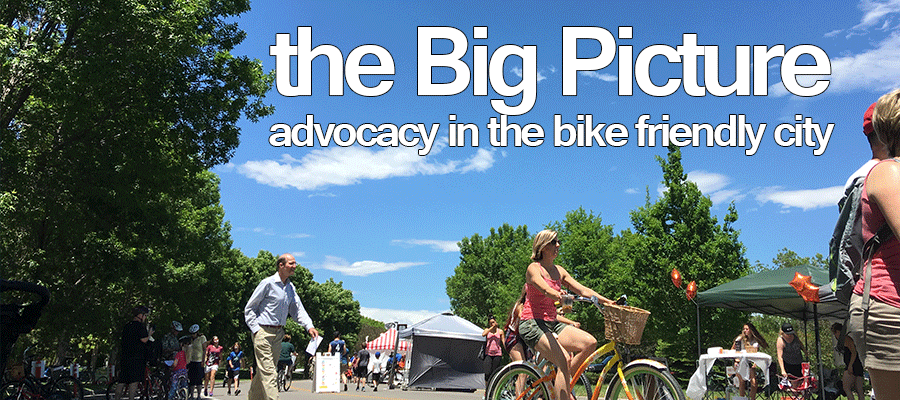
It was a big week for bad news about the future of the human race. In particular, two reports popped up that caught my eye. They’ve fortified some of my thinking about how BFC needs to evolve in the role we play, and in particular how we can leverage our limited resources and time to best advance our vision of more bikes • safe streets • one voice united for Northern Colorado cycling.
In sky-is-falling news, NASA published an entirely unsurprising but anthropologically rigorous paper offering its best guess on how society will collapse. Thier findings, based on the ostensibly unlearned lessons of thousands of years of booms and busts of human civilization: over-consumption or resources, paired with growing disparities in wealth between elites and masses are likely to bring the whole thing crashing down (again). I’m sure you’re as shocked as I was.
In the same week, the National Safety Council released a study showing that 2015 saw a 7.2% spike in traffic fatalities on American streets. For a shocking national total of 35,092 people. And the first 6 months of 2016 looks much much worse. For context, 47,000 americans died in 20 years of the Vietnam war, and just under 4,000 have died in Iraq. The Council’s best guess for why we’re trending in the wrong direction? Americans are driving more and further:
“Vehicle miles traveled, or VMT, reached an all-time high in 2015, and the country is on track to exceed that record in 2016. Cheap gas, poor transit options, and a lack of affordable housing that forces people to live far from their jobs will continue to make this problem worse.”
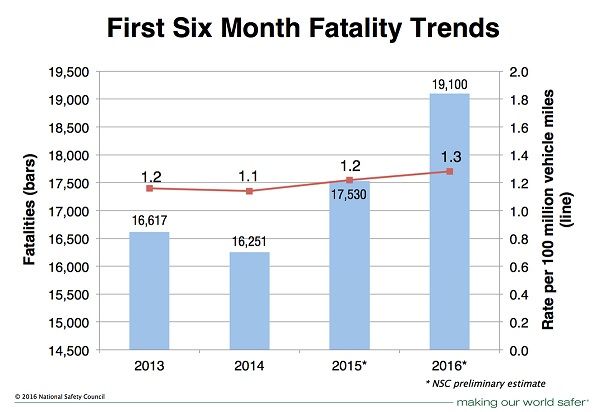
We are seeing this in Northern Colorado too. In Fort Collins, bike related injuries have been declining over the past few years, no doubt in part due to the city’s strong commitment to bike friendly streets and communities. But general traffic fatalities are up in Larimer County, likely connected to Northern Coloradoans driving more and further.
There was one more downer piece of news this week, before we start to put the pieces together. The City Manager’s office delivered its proposed budget to City Council and in a somewhat surprising move, it recommended against funding a Sunday expansion of Transfort bus service. The city uses an over/under format, ranking budget offers and providing a “water line” above which offers are recommended and the budget is balanced Sunday bus service was the the first “underwater” offer in the transportation budget.
Bus service that doesn’t run on sundays (or later at night) is bus service that neglects neighborhoods that are most in need of mass transit where the service industry workforce need complete transit options outside of bankers hours. These are communities where 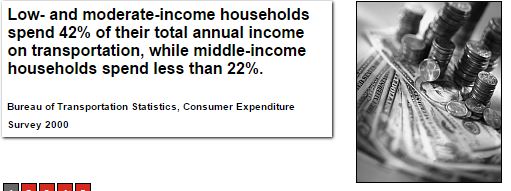 contiguous, robust public transit would be hugely transformative. Where supporting a culture shift towards affordable, reliable, sustainable mobility would have huge impact on some of our greatest challenges, including congestion, parking, hunger, air quality, social cohesion of our communities, public health disparities based on income and neighborhood, and more.
contiguous, robust public transit would be hugely transformative. Where supporting a culture shift towards affordable, reliable, sustainable mobility would have huge impact on some of our greatest challenges, including congestion, parking, hunger, air quality, social cohesion of our communities, public health disparities based on income and neighborhood, and more.
The city argues that Saturday services is underutilized, and that makes an expensive investment in Sunday service irresponsible. I respectfully submit the counter-argument that without a fully functional, 7 day system, it’s impossible to predict the demand, as long as it isn’t a complete transportation option. Its like building a staircase that’s missing 4 stairs and then deciding whether or not to finish it based on how many people use it.
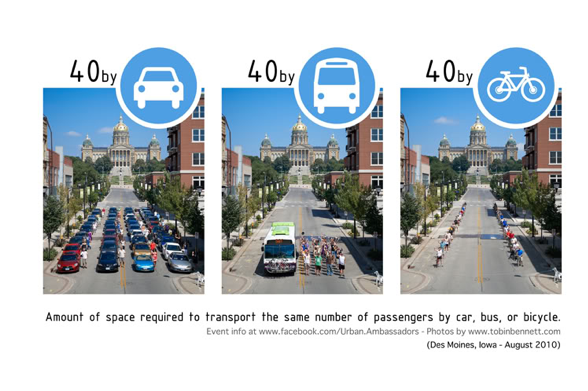 Better public transportation would promote traffic safety for all of us by putting a real dent in overall VMT. (remember, from above, VMT is a significant predictor of death and injury, especially for vulnerable users like bikes and peds.)
Better public transportation would promote traffic safety for all of us by putting a real dent in overall VMT. (remember, from above, VMT is a significant predictor of death and injury, especially for vulnerable users like bikes and peds.)
It is for this reason that I believe that pushing the city for a more robust equitable commitment to mass transportation is one of the most important things BFC can do to advance our vision.
At this point, you’re probably starting to see this big picture.
Fort Collins is heading towards a tipping point, where the cost of living (particularly housing costs) and household and personal income will cross trajectories, and the average current resident will no longer be able to afford to live in the city. For comparison, just over half of Fort Collins’ workforce currently lives in the city, and that number is trending down. Boulders’ percentage of workforce that lives in the city is just over 30.
The consequences of this are far reaching. Long term low to middle income residents who are an important part of our local economic engine are increasingly at risk of displacement and exclusion from our public transportation, bike lanes and safe sidewalks, which will add VMT and its associated costs and impacts.
The working class feels increased pressure to choose between shouldering unsustainable housing costs (depressing their consumer spending on local beer and other goods and services) or moving to surrounding communities like Wellington, Timnath, Windsor and Loveland and driving into Fort Collins. This also depresses local consumer spending (and tax revenue). It also means the workforce spends less time and money in Fort Collins and compounds congestion and adds to our already disruptive and wildly expensive road maintenance burden. In short, the cumulative effect here is the widening disparity and stratification that NASA warns us about between elites and the masses, as well as putting unsustainable stress on our resources. uh oh.
I applaud Fort Collins commitment to building bike lanes and paths and calming traffic, but I also worry that in a future where an increasing percentage of the workforce lives outside the City, we will continue to add vehicle miles traveled, and be forced to continue to prioritize infrastructure that moves large numbers of private cars longer distances at high speeds. This, as the National Safety Council reminds us, will only make roads more dangerous.
Ultimately, it won’t matter if every street in Fort Collins has a protected bike lane, if most of the workforce lives too far away to bike in, and we lack a regional vision to develop a mass transit alternative to private vehicles.
Building bike friendly communities requires building affordable and inclusive communities.
There is no shortage of smart, concerned people working on the affordability challenge in Northern Colorado from different angles: the housing authority, the board of realtors, many local developers, activists like FCCAN and PTAG, Vida Sana and other social services agencies and coalitions, and many within the city itself are all committed to both affordability and equity. There are many competing ideas, but one thing that most agree on is that public perceptions around the impact of affordable housing on neighborhood quality of life and misconceptions about urbanization are formidable challenges.
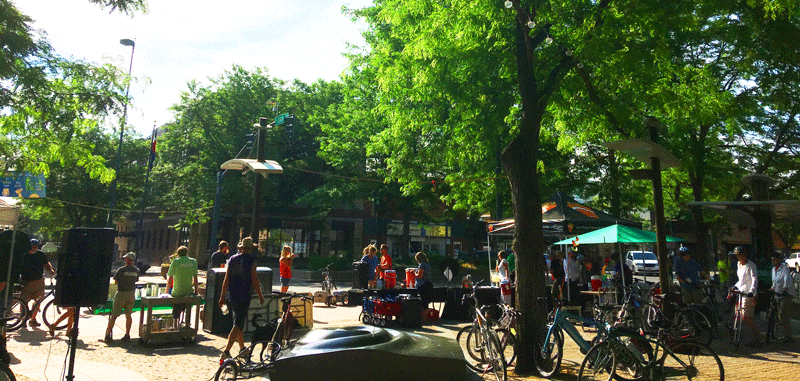
New Urbanism (and its planning tool Transit Oriented Development or TOD) presents us with the most promising strategy for curbing this trend. At its core, new urbanism calls for creating people scale neighborhoods and activated public space. In practice, this means changing our mindset on a few ideas:
Mixed use development: housing and retail/office or light industrial space is integrated into the same property, allows more efficient use of land and enables more people to live closer to work and services
Affordable housing: multi-unit developments needs to include a percentage of affordable units dedicated to low income residents
Development density: increasing the amount of living units in a given parcel of land by subdividing, condominiumizing and building multi-story dwellings
A strong commitment to accessible, sustainable transportation: building communities where goods and services and shared space are accessible via comfortable walking and biking and mass transit networks, and parking minimums are reduced or phased out.
Fort Collins is a platinum certified Bike Friendly Community. We have one of the best percentages of people commuting by bike, foot, and mass transit, of any similar sized city in the US. But that mode share, for bikes, is 8%, by the most generous metrics. This means that as a practical matter, bike riders continue to be marginal users of streets and roads, both in the eyes of the public and in prioritization of city planning and spending.
At the heart of Bike Fort Collins’ vision is a feedback loop of getting more people on bikes (mode shift), getting them engaged and united, and bringing them together to help build safer streets and communities that further encourage more people to ride. As we plan a Northern Colorado that is safer and more comfortable for biking and walking, more people will bike and walk, and that will encourage private and public investment into bike friendly planning and development. And that means, first and foremost, bike advocates must advocate for curbing VMT by advocating for ALL SUSTAINABLE MODES, not just bikes.
This will require a concerted, coordinated effort among advocates, cyclists, city leaders, businesses and our partners in promoting active mobility and transportation equity.
We NEED our leaders to stand up for smarter, stronger city planning, including new urbanism and TOD.
We NEED our businesses to incentivize customer and staff participation in sustainable transit with bike friendly business practices.
We NEED our neighbors and communities to appreciate the connection between urbanizing and more responsible stewardship of resources from land to water to air quality.
And we need you, our allies and supporters and members to join us:
Find your council member and ask them to support Sunday Transfort service. (and while you’re at it, try using the bus a little more, its pretty handy and getting better all the time)
Follow the city’s development review process and get involved with community meetings in your area. Stand up for smarter, more transit oriented development and affordable housing.
Follow Bike Fort Collins on social media to learn about opportunities to rally in front of city boards and council in support of people scaled communities. And consider supporting us as a paid member, committee member, volunteer, donor, or bike friendly business.
On Thursday, September 8th at 7PM, I’ll be presenting a Pub Talk at Wolverine Farm Letterpress & Publick House (316 Willow) that will explore these issues further, and I’d love to have folks show up to join the conversation.
Thanks,
Chris J Johnson
Executive Director
Bike Fort Collins
chris.johnson@bikefortcollin.org
